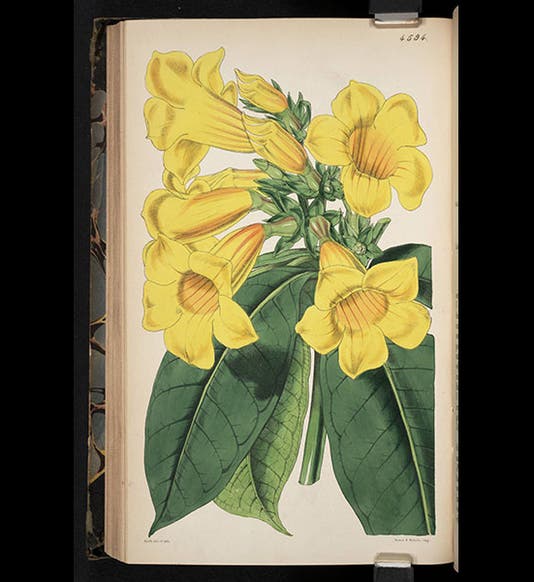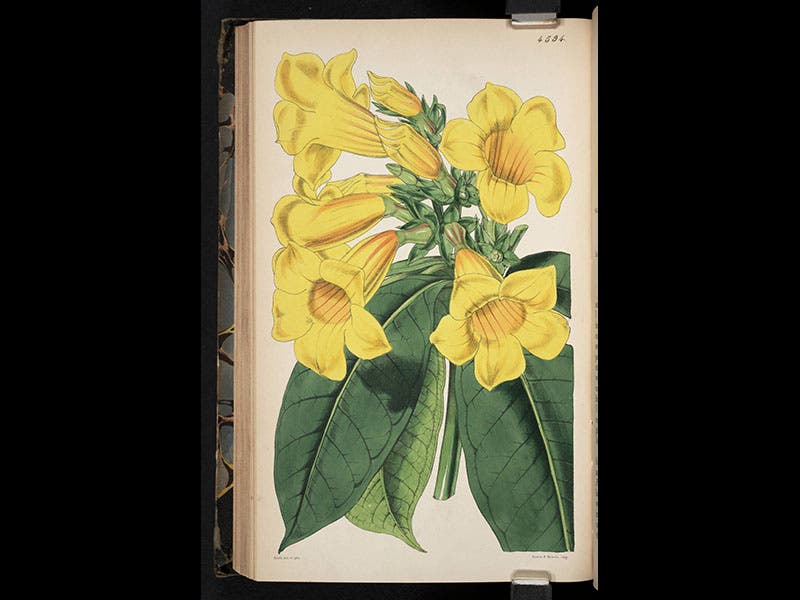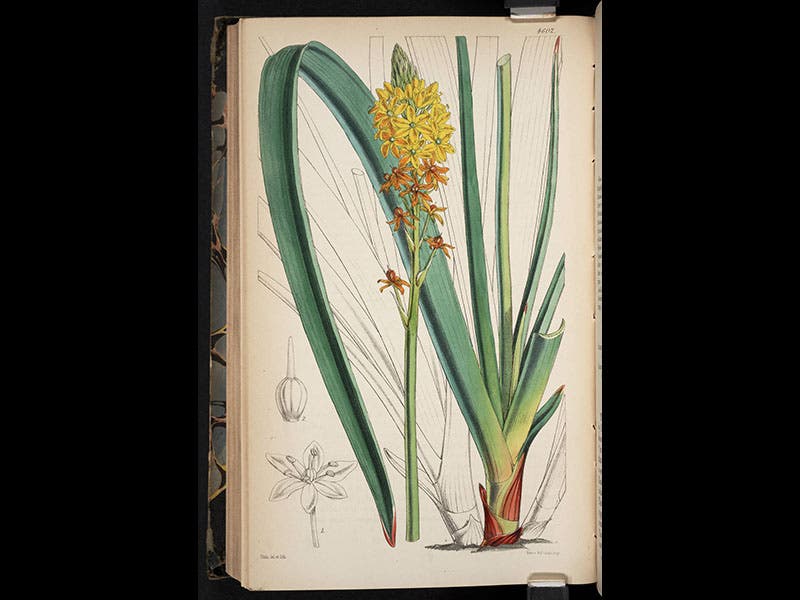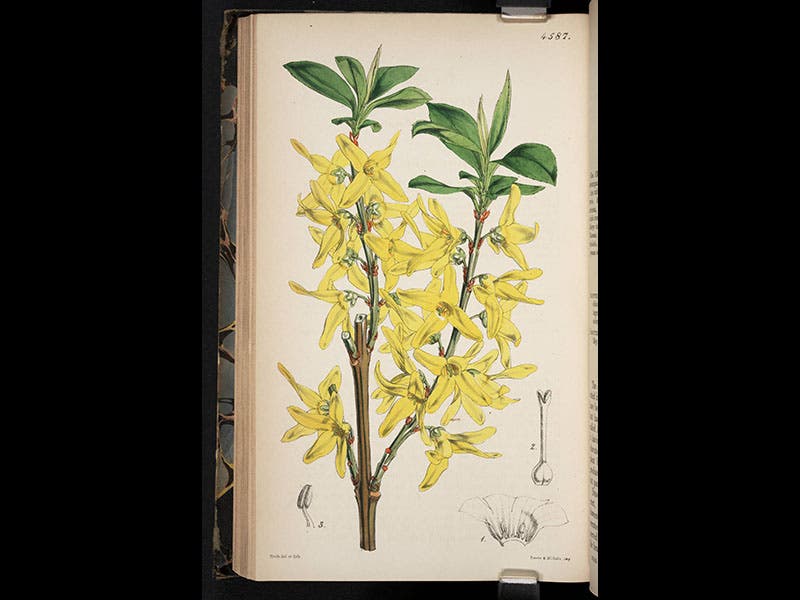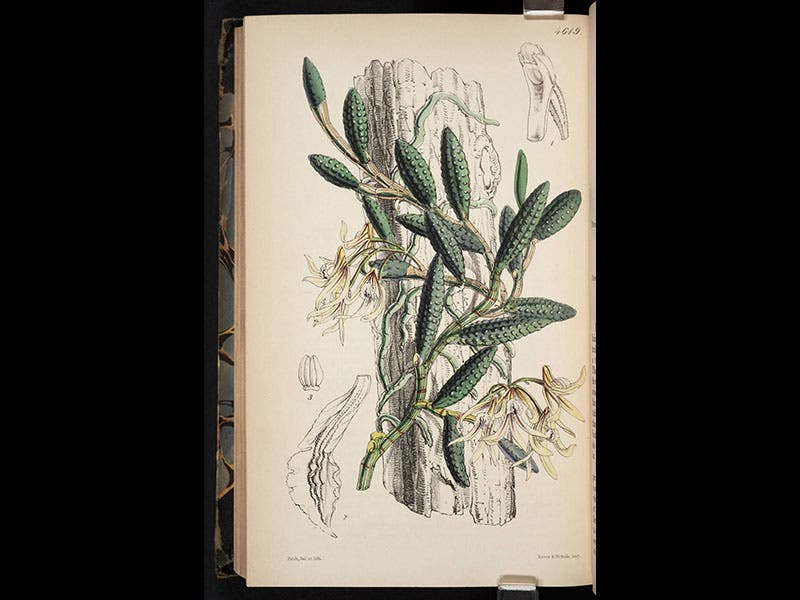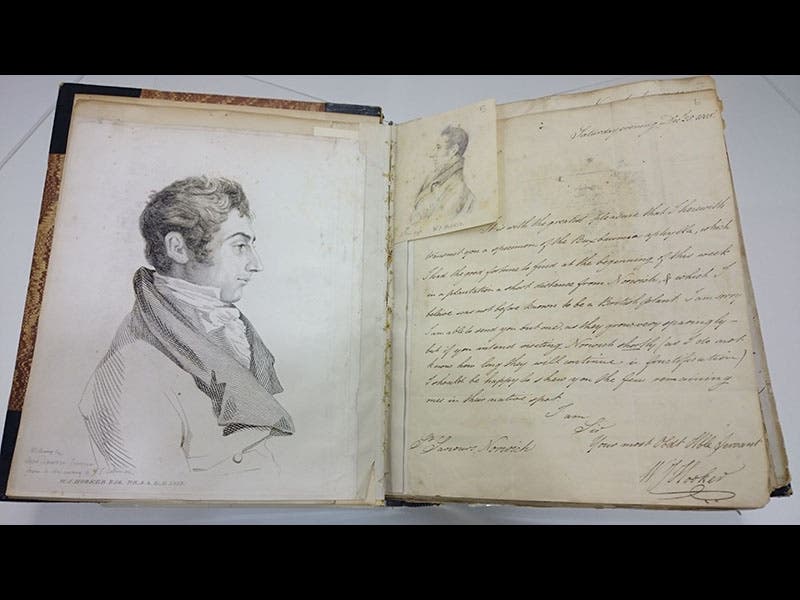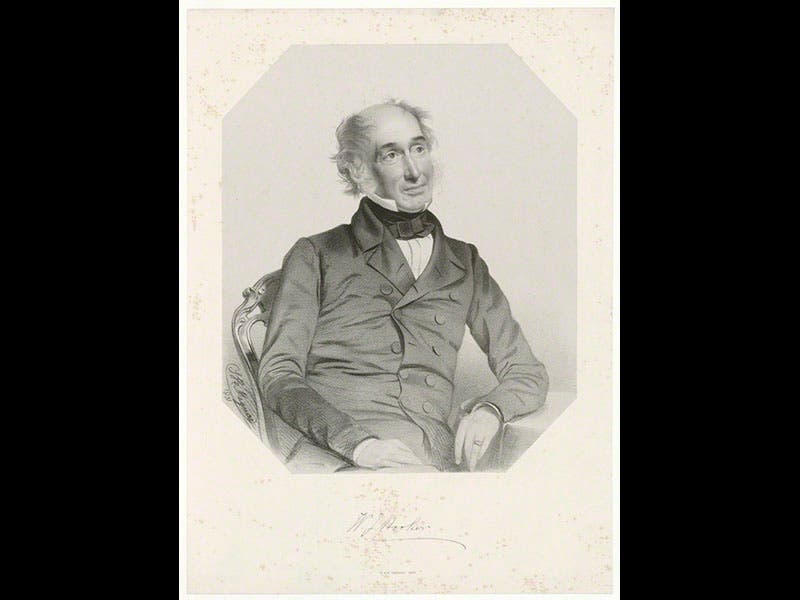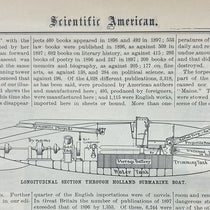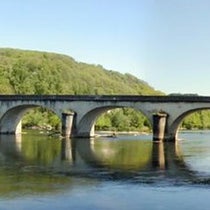Scientist of the Day - William Jackson Hooker
William Jackson Hooker, an English botanist, was born July 6, 1785. Hooker cut his botanical teeth on Arctic flora, as the collecting fruits from the northern voyages and expeditions of Edward Parry, William Beechey, and John Franklin were turned over to Hooker for description and publication. Then, in 1826, Hooker took over as editor of Curtis's Botanical Magazine, which each month published an issue with a number of hand-colored lithographs of flowering plants, mostly exotic ones. The artist was Walter Hood Fitch, whom Hooker personally selected as the magazine artist. Hooker continued to edit the journal, even after he was appointed Director of the Royal Gardens at Kew in 1841. On the occasion of our Grandeur of Life exhibition in 2009, celebrating the bicentennial of Darwin's birth, we digitized the images in one of the volumes of the magazine, that for 1851, and four of those lithographs are shown above, in order: an Allamanda, from Brazil; a Maori lily, from New Zealand; a forsythia, from China; and a Cucumber orchid, from Australia. Two other flowers from the same volume, a Nepalese poppy and a Royal-blue water lily, can be seen on the exhibition website.
Last year, Kew Gardens mounted an exhibition celebrating the 150th anniversary of Hooker's death in 1865. One of the display cases contained a rarely-reproduced etching of the young Hooker, made after a drawing--both were exhibited, along with a letter from Hooker (fifth image). A more conventional portrait of a more mature Hooker is the lithograph made by Thomas Maguire in 1851 (sixth image).
Dr. William B. Ashworth, Jr., Consultant for the History of Science, Linda Hall Library and Associate Professor, Department of History, University of Missouri-Kansas City. Comments or corrections are welcome; please direct to ashworthw@umkc.edu.

